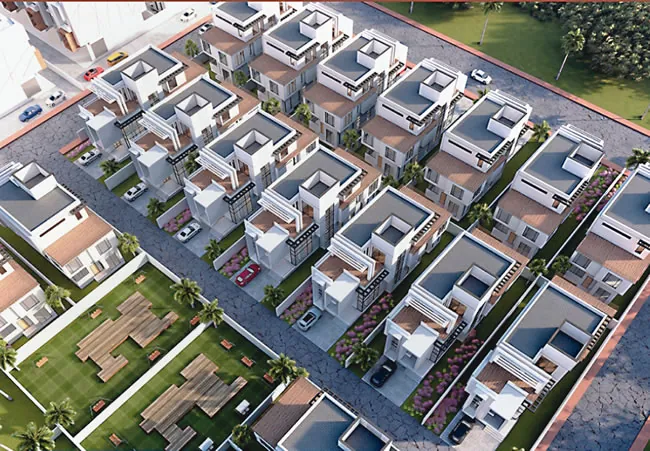More than 70 percent of Lagos residents are still renters, with many spending between 40 and 60 percent of their income on housing, according to a newly released report on the state of the housing market in Nigeria’s commercial capital. The findings paint a grim picture of deepening inequality in access to affordable housing.
The report, launched by the Roland Igbinoba Real Foundation for Housing and Urban Development (RIRFHUD), offers a comprehensive review of the Lagos real estate sector. Presented during an event in Victoria Island, the study captures data from satellite analysis, field surveys, and market intelligence, making it one of the most detailed independent housing assessments conducted in the state.
While luxury developments and short-let apartments in areas such as Lekki, Ikoyi, and Victoria Island are booming—largely fueled by diaspora investment and high-net-worth individuals the report notes that low- and middle-income earners are being pushed further to the margins. Despite broader economic challenges, these upscale areas continue to command high rental values, with little sign of slowing down.

The report, now in its third edition following earlier versions released in 2009 and 2016, highlights a sharp contrast between the vibrant growth of premium housing and the stagnation in affordable housing delivery. It reveals that Lagos’ housing deficit has climbed from 2.95 million units in 2016 to around 3.4 million units in 2025, representing a 15 percent increase in under a decade.
Increased demand in urban fringe communities such as Ikorodu, Badagry, and Alimosho has not been matched by new residential development. At the same time, property prices in the city have risen by an average of 12 percent year-on-year, even as construction costs and inflation soar. Short-let and serviced apartments in high-income zones are yielding returns of up to 18 percent, but vacancy rates are rising in mainland districts due to affordability concerns.
Infrastructure shortcomings continue to pose a major obstacle to development. Inconsistent electricity supply, poor road networks, and inadequate drainage systems are diminishing the viability of many neighborhoods. These issues, coupled with a widening affordability gap, are making it increasingly difficult for average Lagosians to own homes or even sustain rental payments.
One respondent captured the mood succinctly: “The market is saturated with high-end apartments, but the middle class can’t keep up.” This sentiment was echoed throughout the report, which also shed light on the bureaucratic difficulties developers face. Land titling and documentation remain cumbersome and costly, reportedly adding 15 to 20 percent to housing development expenses. The delays in securing permits further discourage investment and contribute to the slow pace of residential construction.
According to the report, these administrative inefficiencies are hampering housing delivery across all income segments and must be addressed if the city hopes to meet future demand. As the population of Lagos continues to grow rapidly, experts warn that unless urgent reforms are made in infrastructure, policy, and urban planning, the housing crisis will deepen, leaving millions in precarious living conditions.
The foundation called for coordinated policy actions that prioritize affordability, improve infrastructure, and streamline regulatory frameworks to encourage private sector participation in housing development. Without such interventions, Lagos risks further entrenching inequality in one of Africa’s fastest-growing cities.




